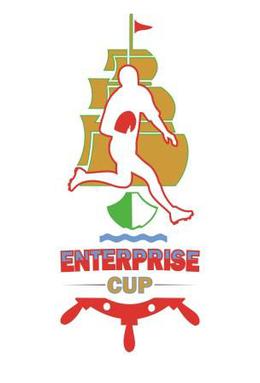Qualification for the 2004 African Cup of Nations.

Listed below are the dates and results for the 1998 FIFA World Cup qualification rounds for the African zone (CAF). For an overview of the qualification rounds, see the article 1998 FIFA World Cup qualification.
Listed below are the dates and results for the 1986 FIFA World Cup qualification rounds for the African zone (CAF). For an overview of the qualification rounds, see the article 1986 FIFA World Cup qualification.
This page details the process of the 1998 African Cup of Nations Qualification phase. Burkina Faso, as hosts, and South Africa, as title holders, qualified automatically.
Listed below are the dates and results for the 1978 FIFA World Cup qualification rounds for the African zone (CAF). For an overview of the qualification rounds, see the article 1978 FIFA World Cup qualification.

The Elgon Cup is contested between the rugby union teams of Kenya and Uganda. The men's and women's teams of these countries each compete annually for their respective cups on a Home-and-Away basis. The competition and the cups are named after Mount Elgon, a mountain on the border of the two countries.
This page details the process of qualifying for the 2002 African Cup of Nations.
This page details the process of qualifying for the 1962 African Cup of Nations. 7 African nations initially entered the competition. Ethiopia and Egypt both automatically qualified as the host country and title holders respectively. Sudan withdrew before the draw, and Morocco would withdraw before play began, thus leaving only 5 teams actually competing for the two spots remaining in the finals.
This page details the process of qualifying for the 2000 African Cup of Nations.
The Qualification for the 1996 African Cup of Nations took place in 7 groups of 6 teams each, with the top 2 teams from each group progressing to the tournament. Nigeria and South Africa qualified automatically, as champions and hosts respectively. Qualification began in September 1994 and ended in July 1995.

The Bamburi Super Series was an East African Rugby union competition with eight teams in total, five teams from Kenya two from Uganda and one from Tanzania (Twigas) that is currently defunct. It is closely based on the Super Rugby competition in the southern hemisphere. Games take place at the RFUEA Ground in Nairobi (Kenya), Friedkin Recreation Centre in Arusha (Tanzania) and the Kyadondo Grounds, Kampala (Uganda). Rhinos have won the most titles with four wins, and are the only team to have defended a title when they beat the Cheetahs 25–5 in the 2010 final.

The Enterprise Cup is an annual rugby union competition in Kenya, Tanzania and Uganda, though the competition frequently has the appearance of being an all-Kenyan affair as the majority of rugby clubs in the African Great Lakes region are based in this one country and frequently clubs in Tanzania and Uganda are unable to take part due to financial constraints. The original cup was donated by sailors from HMS Enterprise, who had toured British East Africa in 1928. The only years in which the competition has not been played is between 1940–1946 due to World War II and in 1987 because an international rugby competition was held on RFUEA Ground as part of the All Africa Games.
This page details the qualifying process qualifying for the 1994 African Cup of Nations. Zaire was originally chosen to host the final tournament, however it was replaced by Tunisia.
This page details the qualifying process qualifying for the 1992 African Cup of Nations in Senegal. Senegal, as hosts, and Algeria, as title holders, qualified automatically.

The 2012 CECAFA Cup was the 36th edition of the annual CECAFA Cup, an international football competition consisting of national teams of member nations of the Council for East and Central Africa Football Associations (CECAFA). The tournament, which was held in Uganda from 24 November to 8 December, saw South Sudan participate in their first international football tournament. Hosts Uganda beat Kenya in the final to extend their record to 13 titles.
This page details the process of qualifying for the 1965 African Cup of Nations.
This page details the process of qualifying for the 1972 African Cup of Nations.
This page details the process of qualifying for the 1974 African Cup of Nations which was held in Egypt in March 1974. Eight teams qualified for the finals, including Egypt as hosts and Congo as the holders of the title, having won the 1972 tournament in Cameroon.
The 2000 CECAFA Cup was the 24th edition of the football tournament, which involves teams from Southern and Central Africa. The matches were played in Uganda, a decision which Tanzania protested, but to no avail. Tanzania were also banned from international football by FIFA, the world football governing body. The matches were played from 18 November to 2 December 2000. Prior to the tournament, Djibouti withdrew due to monetary difficulties, but re-entered. Sudan and Zanzibar also withdrew, but stayed out. The reasoning behind their withdrawal was unknown.
The 2025 U-17 Africa Cup of Nations qualification is a men's under-17 football competition that decides the participating teams of the 2025 U-17 Africa Cup of Nations.



